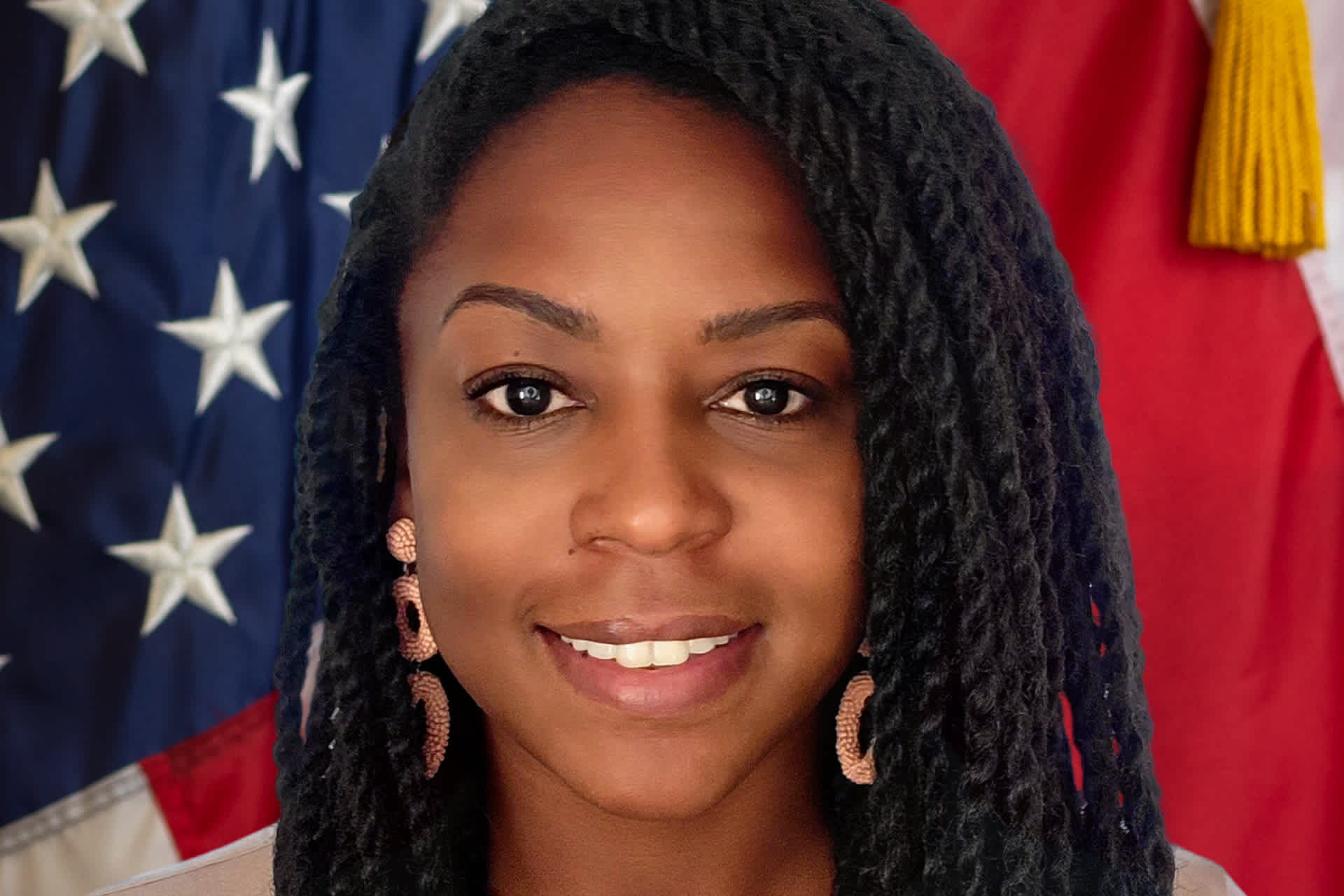Real Talk with Jerica Shackelford

As chief of staff at the D.C. Homeland Security and Emergency Management Agency, Jerica Shackelford leads a team of more than 60 people. Originally from Houston, Texas, Shackelford studied communications at Texas A&M University before moving to the nation’s capital. Her job is to help keep D.C. residents and visitors safe and informed during public emergencies.
Your Hot Job spoke with Shackelford about her work.
What do you do as an emergency management specialist?
As the chief of staff at the District of Columbia’s Homeland Security and Emergency Management Agency, my central role is ensuring everything runs smoothly within our organization when emergencies occur. I also reach out to other agencies in the district, collaborating on planning, drafting emergency plans, and conducting training and exercises. The 24/7 watch of the city involves coordinating resources. I’ve had firsthand experience in deploying to support emergency operations. In 2017, I traveled to Florida with other D.C. emergency personnel to assist in hurricane relief.
Can you explain how you help people during emergencies?
I coordinate with various agencies throughout the District of Columbia, including the fire and police departments. We assist in setting up distribution points for essential supplies like water, food, and vaccines during emergencies such as hurricanes, floods, snowstorms, and more. We also advertise on radio, TV, metro [trains], and bus stops, and attend community events to reach as many people as possible, ensuring they have the necessary resources and information to withstand hazards. Our website also guides residents through packing an emergency “go” kit with the essentials—nonperishable food, medical supplies, flashlights, spare batteries, blankets—to make sure residents are ready for any crisis.

What kinds of emergencies do you prepare for?
We focus on potential crises, including hurricanes, flooding, cyberattacks, and damage to critical infrastructure and transportation systems. However, the unique landscape of Washington, D.C., introduces additional considerations, particularly with First Amendment events where opposing groups converge, potentially leading to riots or disturbances.
As emergency managers, we remain apolitical while coordinating with local and federal partners. During major events like presidential inaugurations, we coordinate public notifications through text alerts and oversee public messaging.
How did you know you wanted to do this as a career?
I stumbled into emergency management quite unexpectedly. On September 11, 2001, I was in my 11th-grade physics class, clueless about this profession. It wasn’t even a defined career path then. It was in the aftermath of the September 11 terrorist attacks on the United States that certain laws and grants paved the way for emergency management jobs to [deal with] these tragedies. While in college, I worked for a company that FEMA [the Federal Emergency Management Agency] supported, and my exposure grew. I studied broadcast journalism in college, and feel that good communication skills are at the heart of emergency management. Each day is different. One day, I could focus on administrative work. Another day, I’m out in the field.
What’s the most exciting part of your job?
I deal with various challenges in my job, engaging in complex problem-solving regularly. Take this recent experience: When I returned from vacation, a boil-water advisory was issued due to compromised water, affecting 19,000 customers in D.C. Simultaneously, there was a First Amendment event and a gas explosion, all unfolding between Wednesday and Saturday. The most exciting part of the job is that it keeps me on my toes.

What tools or equipment do you use to help people during emergencies?
In emergency management, our primary tools are people and effective communication. My team and I do post-emergency canvassing operations, where we go door-to-door. For example, if there’s a flood, we assess flood damage and connect residents with resources for cleanup. My team and I are also helping communities identify available resources, so residents know where to turn for help, whether requesting assistance with home repairs or finding a local food bank.
What advice would you have for a kid who was interested in becoming an emergency management specialist?
I encourage kids to connect with someone already doing the job. Older kids and teenagers can volunteer with the American Red Cross. Some people who become emergency managers start as paramedics or emergency medical technicians (EMTs). Others begin as city planners. Emergencies require an all-hands-on-deck approach. Traditionally, people who became emergency managers came from military backgrounds or were retired firefighters or police, but as the field grows, we’ve seen people from more-diverse backgrounds in this career.

